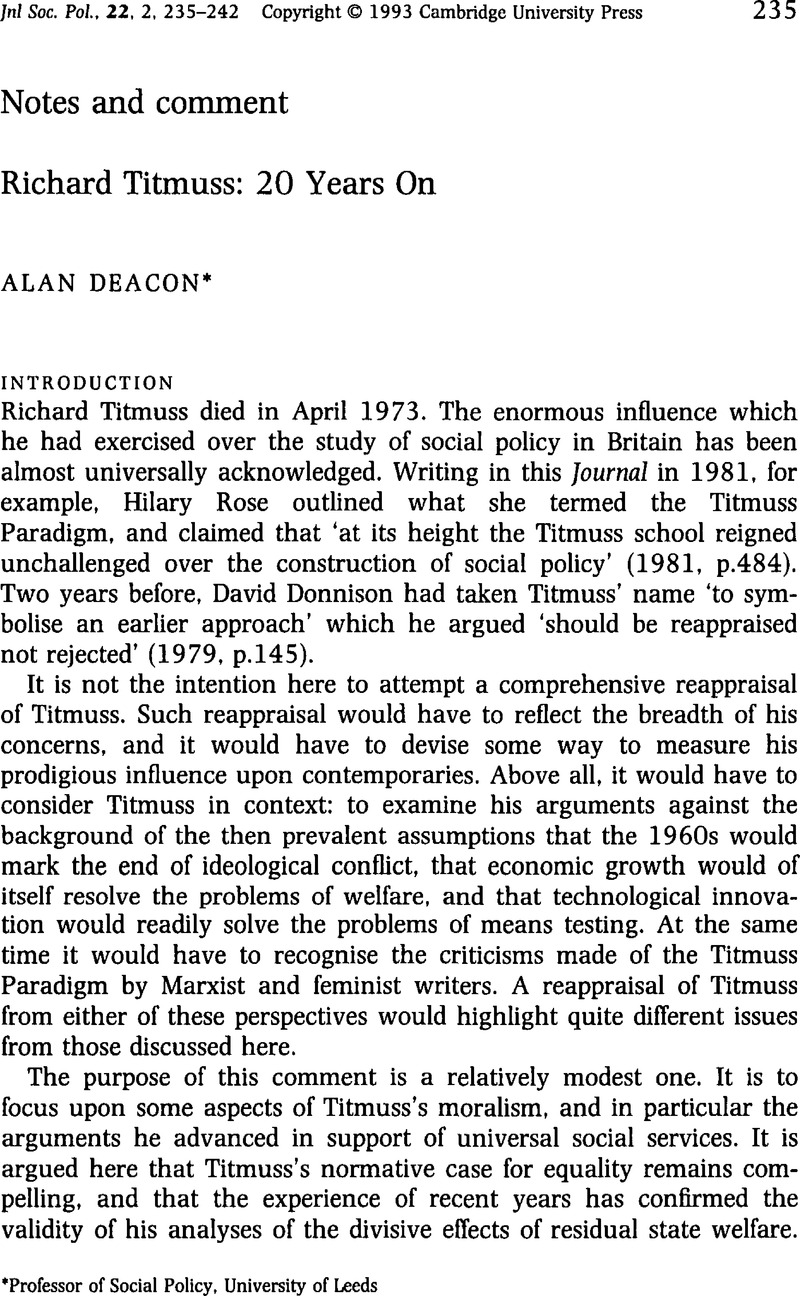Crossref Citations
This article has been cited by the following publications. This list is generated based on data provided by Crossref.
Powell, Martin
1995.
The Strategy of Equality Revisited.
Journal of Social Policy,
Vol. 24,
Issue. 2,
p.
163.
Mann, Kirk
1999.
Capitalism and Social Cohesion.
p.
149.
Martin, Sonia
2004.
Reconceptualising Social Exclusion: A Critical Response to the Neoliberal Welfare Reform Agenda and the Underclass Thesis.
Australian Journal of Social Issues,
Vol. 39,
Issue. 1,
p.
79.
MANN, KIRK
2009.
Remembering and Rethinking the Social Divisions of Welfare: 50 Years On.
Journal of Social Policy,
Vol. 38,
Issue. 1,
p.
1.
Page, Robert M.
2010.
The Changing Face of Social Administration.
Social Policy & Administration,
Vol. 44,
Issue. 3,
p.
326.
EXWORTHY, MARK
HYDE, PAULA
and
MCDONALD-KUHNE, PAMELA
2016.
Knights and Knaves in the English Medical Profession: the Case of Clinical Excellence Awards.
Journal of Social Policy,
Vol. 45,
Issue. 1,
p.
83.
Marques, Eduardo
and
Faria, Carlos Aurélio Pimenta
2018.
A política pública como campo multidisciplinar.





